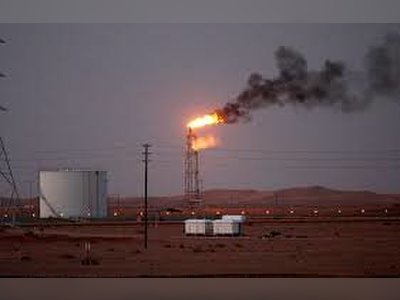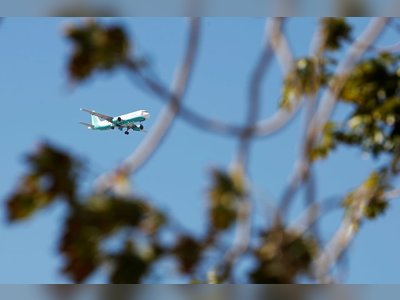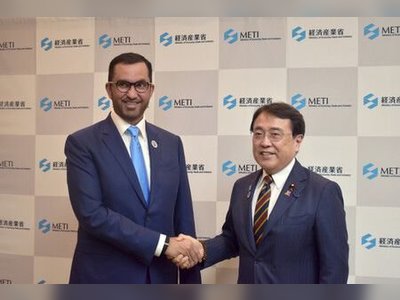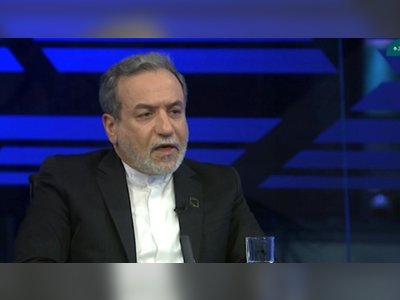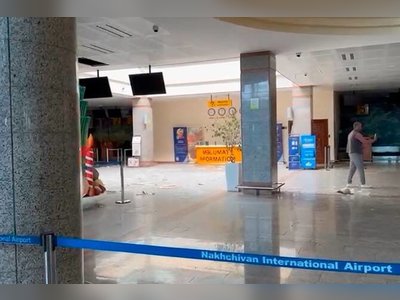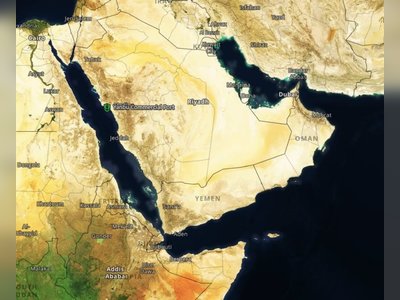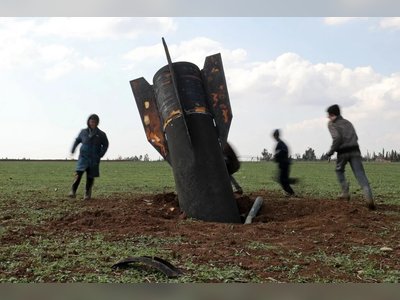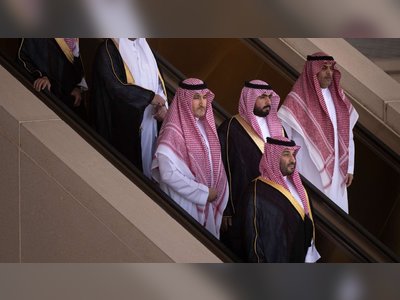
Syria's New Leader Commits to Combatting 'Illegal Immigration' in Talks with Italy
In a significant diplomatic engagement, Syria's Ahmed Al-Sharaa promises efforts against illegal immigration and drug trafficking, while discussions on lifting EU sanctions emerge.
BEIRUT – Syria's newly appointed leader, Ahmed Al-Sharaa, expressed his readiness to tackle 'illegal immigration' to Europe during discussions with Italian Foreign Minister Antonio Tajani on Friday.
Tajani, who is currently on an official visit to Lebanon as part of his regional tour, highlighted these commitments in conversations with media representatives.
'The Syrian leader, Al-Sharaa, emphasized his willingness to block illegal immigration routes and confront drug trafficking networks,' Tajani stated in Beirut, emphasizing the significance of these promises for Italy amidst its ongoing struggles with migration and organized crime challenges.
'These are two crucial commitments for Italy,' he noted.
In addition to the security-focused dialogues, discussions also touched upon the contentious topic of imposing economic sanctions on Syria, which have been in place for years.
Tajani advocated for a temporary suspension of European Union sanctions on Syria lasting six months to a year, motivated by what he referred to as constructive gestures from Damascus.
'However, lifting these sanctions is not within national jurisdiction alone,' he conceded, noting that such decisions require a consensus among EU member nations.
The diplomatic exchanges between Italy and Syria extend beyond immediate concerns.
Antonio Tajani also engaged with Syria's new foreign affairs head, Asaad Al-Shaibani.
During a post-meeting press conference, Al-Shaibani announced his forthcoming official visit to several European countries, marking his first such international tour since assuming office.
'I am delighted to declare my plans to lead a high-level delegation on a tour that includes numerous European nations,' Al-Shaibani confirmed.
In the short time since his appointment, Al-Shaibani has engaged in diplomatic visits to prominent Middle Eastern countries, including Saudi Arabia, the United Arab Emirates, Qatar, and Jordan, suggesting a proactive foreign policy agenda.
Meanwhile, preceding Tajani's visit to Lebanon, he held discussions in Rome with European peers and US Secretary of State Antony Blinken.
There, the broader diplomatic consensus focused on championing a 'stable and united Syria,' as emphasized by Tajani.
Simultaneously in Brussels, the European Union's foreign policy head, Kaja Kallas, hinted at potential shifts in the EU's stance towards Syria.
On Friday, Kallas suggested that the 27-member bloc might consider easing current sanctions on Syria, contingent upon the new regime's initiative to build an inclusive government safeguarding minority rights.
Such developments underscore a burgeoning diplomatic engagement that could redefine Syria's ties with Europe in the coming months.
Tajani, who is currently on an official visit to Lebanon as part of his regional tour, highlighted these commitments in conversations with media representatives.
'The Syrian leader, Al-Sharaa, emphasized his willingness to block illegal immigration routes and confront drug trafficking networks,' Tajani stated in Beirut, emphasizing the significance of these promises for Italy amidst its ongoing struggles with migration and organized crime challenges.
'These are two crucial commitments for Italy,' he noted.
In addition to the security-focused dialogues, discussions also touched upon the contentious topic of imposing economic sanctions on Syria, which have been in place for years.
Tajani advocated for a temporary suspension of European Union sanctions on Syria lasting six months to a year, motivated by what he referred to as constructive gestures from Damascus.
'However, lifting these sanctions is not within national jurisdiction alone,' he conceded, noting that such decisions require a consensus among EU member nations.
The diplomatic exchanges between Italy and Syria extend beyond immediate concerns.
Antonio Tajani also engaged with Syria's new foreign affairs head, Asaad Al-Shaibani.
During a post-meeting press conference, Al-Shaibani announced his forthcoming official visit to several European countries, marking his first such international tour since assuming office.
'I am delighted to declare my plans to lead a high-level delegation on a tour that includes numerous European nations,' Al-Shaibani confirmed.
In the short time since his appointment, Al-Shaibani has engaged in diplomatic visits to prominent Middle Eastern countries, including Saudi Arabia, the United Arab Emirates, Qatar, and Jordan, suggesting a proactive foreign policy agenda.
Meanwhile, preceding Tajani's visit to Lebanon, he held discussions in Rome with European peers and US Secretary of State Antony Blinken.
There, the broader diplomatic consensus focused on championing a 'stable and united Syria,' as emphasized by Tajani.
Simultaneously in Brussels, the European Union's foreign policy head, Kaja Kallas, hinted at potential shifts in the EU's stance towards Syria.
On Friday, Kallas suggested that the 27-member bloc might consider easing current sanctions on Syria, contingent upon the new regime's initiative to build an inclusive government safeguarding minority rights.
Such developments underscore a burgeoning diplomatic engagement that could redefine Syria's ties with Europe in the coming months.
